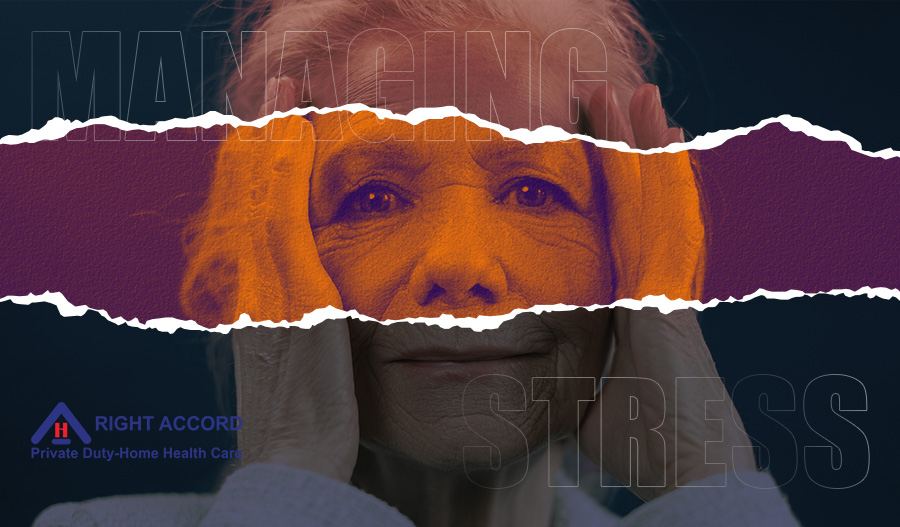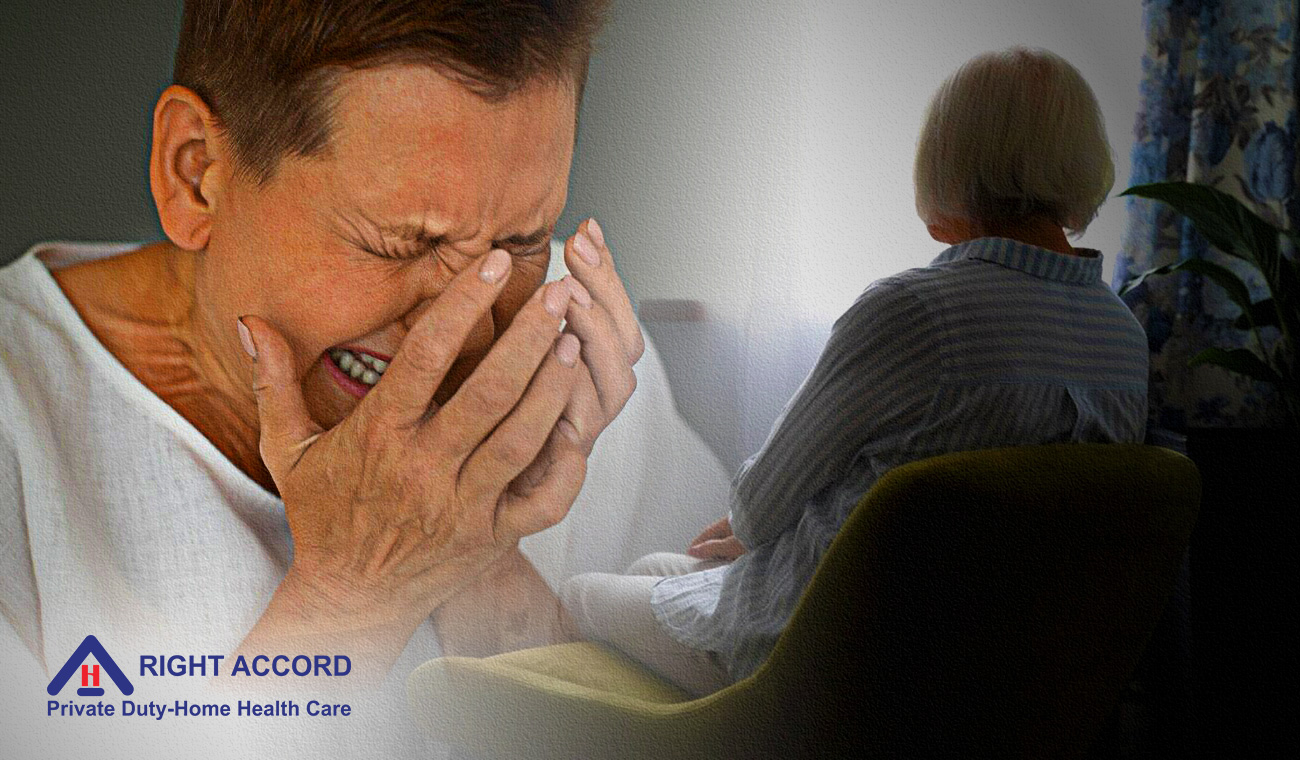· 8 min read
The Important Role of Sleep in Seniors Health and Well-being
National Sleep Awareness Week promote health by educating seniors and their loved ones on the vital role of adequate sleep in their overall wellness.
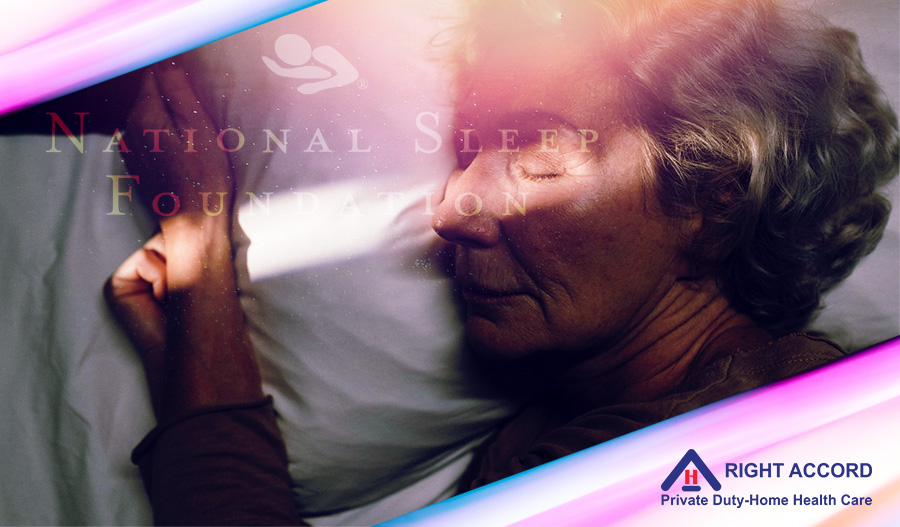
By: Rosemarie Tamunday Casanova — RN, BSN, MHA
Sleep is essential for the health and wellbeing of all humans, but it is especially vital for seniors. According to the National Institutes of Health, people over the age of 65 are more likely to experience chronic sleep disturbances, which can have serious consequences on their physical and mental health.
To promote awareness of the importance of sleep in senior health, the National Sleep Foundation (NSF) created National Sleep Awareness Week, an annual event that encourages seniors to prioritize sleep. During this week, the NSF seeks to educate seniors, their loved ones, and healthcare professionals on the vital role that sleep plays in their overall health and wellness. Through this awareness, seniors can begin to understand the importance of getting enough sleep and how to do so in order to maintain their physical and mental health.
The importance of sleep in senior health
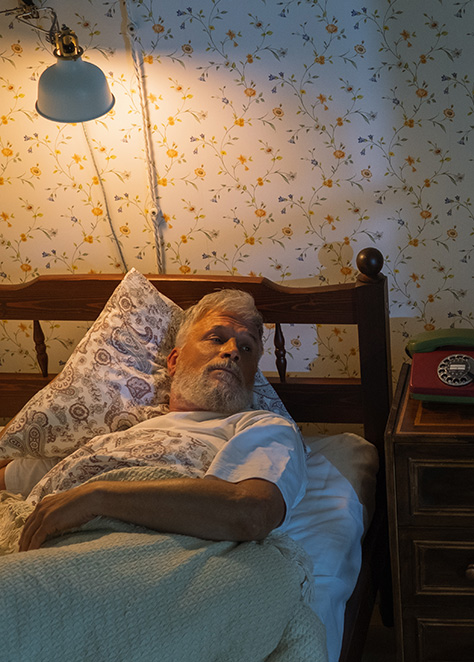
Photo by Ron Lach on pexels
Sleep is an essential component of health and wellbeing for all people, regardless of age. However, it is especially important for seniors due to their increased risk of chronic sleep disturbances. Poor and inadequate sleep can lead to a range of physical and mental health issues, including poor memory, increased risk of falls, weakened immune system, and depression.
Additionally, sleep deprivation can contribute to an increased risk of chronic diseases such as diabetes, heart disease, and stroke. For these reasons, it is important for seniors to prioritize getting enough sleep in order to maintain their overall health and wellbeing.
Sleep plays an important role in the physical and mental health of seniors. Physically, sleep helps to regulate hormones and allows the body to rest and repair itself. It also helps to boost the immune system and is essential for maintaining physical energy and strength. Mentally, sleep is important for maintaining cognitive function and memory recall. It can also help to reduce stress and anxiety levels and improve mood. In short, getting enough quality sleep is key to senior health and wellbeing.
Common sleep disorders in seniors
Unfortunately, many seniors struggle to get enough quality sleep due to a variety of sleep disorders. The most common sleep disorders in seniors include insomnia, sleep apnea, restless leg syndrome, and narcolepsy. Insomnia is the most common sleep disorder in seniors and is characterized by difficulty falling asleep or staying asleep.
Sleep apnea is a condition in which a person’s breathing is interrupted multiple times throughout the night. Restless leg syndrome is a condition in which a person experiences an uncomfortable sensation in their legs that causes them to move around during the night. Finally, narcolepsy is a condition in which a person experiences excessive daytime sleepiness and can fall asleep suddenly and without warning.
It is important for seniors to be aware of the symptoms of these sleep disorders so that they can seek medical help if needed. Additionally, it is important for seniors to understand that these sleep disorders can be managed and treated with the help of a healthcare professional.
How to promote healthy sleeping habits in seniors
In order to promote healthy sleeping habits in seniors, it is important to create a sleep-friendly environment. This can include setting a regular bedtime, avoiding caffeine and alcohol before bed, and avoiding the use of electronic devices before bedtime. Additionally, it is important to maintain a comfortable temperature in the bedroom and to keep it dark and quiet.
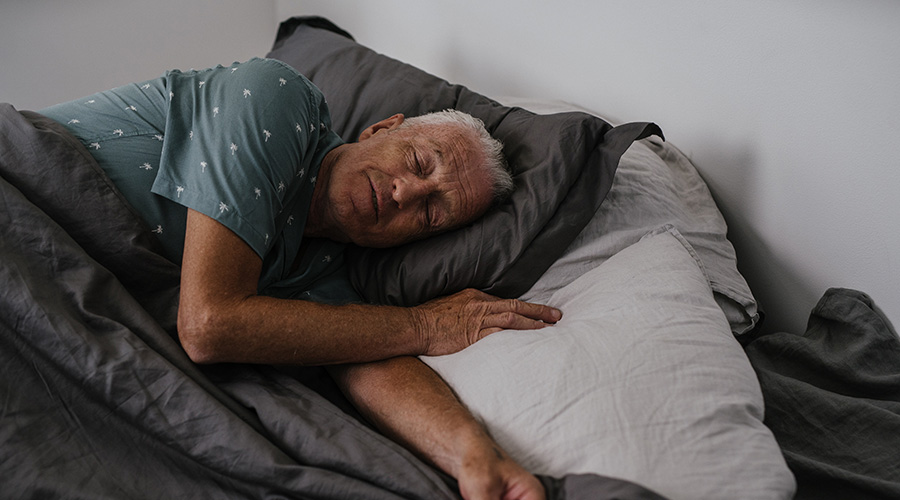
Photo by Shvets Production on pexels
Exercise is also important for promoting healthy sleeping habits in seniors. Regular physical activity can help to reduce stress and anxiety levels, as well as improve overall physical strength and energy. Additionally, it can help to regulate a person’s sleep-wake cycle and promote a better quality of sleep.
Finally, it is important to address any underlying medical conditions that may be contributing to sleep disturbances. This could include treating high blood pressure, chronic pain, or depression. It is also important to talk to a healthcare professional about any medications that may be affecting sleep quality.
The consequences of sleep deprivation in seniors
Sleep deprivation can have a number of serious consequences for seniors. Physically, it can lead to a weakened immune system, increased risk of falls, and physical fatigue. It can also lead to cognitive decline, memory loss, and difficulty concentrating. Additionally, sleep deprivation can increase a person’s risk of developing chronic diseases such as diabetes, heart disease, and stroke.
Mentally, sleep deprivation can lead to increased stress and anxiety levels, as well as depression. It can also lead to a decreased quality of life, feelings of isolation, and social withdrawal. If left untreated, sleep deprivation can have serious consequences on a senior’s physical and mental health.
The impact of sleep on mental health
Sleep is essential for maintaining good mental health. Poor sleep can lead to increased stress and anxiety levels, as well as depression. It can also lead to difficulty concentrating, memory loss, and cognitive decline. Additionally, it can lead to a decreased quality of life and feelings of isolation.
Conversely, getting enough quality sleep can help to reduce stress and anxiety levels, as well as improve overall mood. It can also help to improve cognitive function, memory recall, and concentration. In short, getting enough quality sleep is essential for maintaining good mental health in seniors.
Tips for getting a better night’s sleep
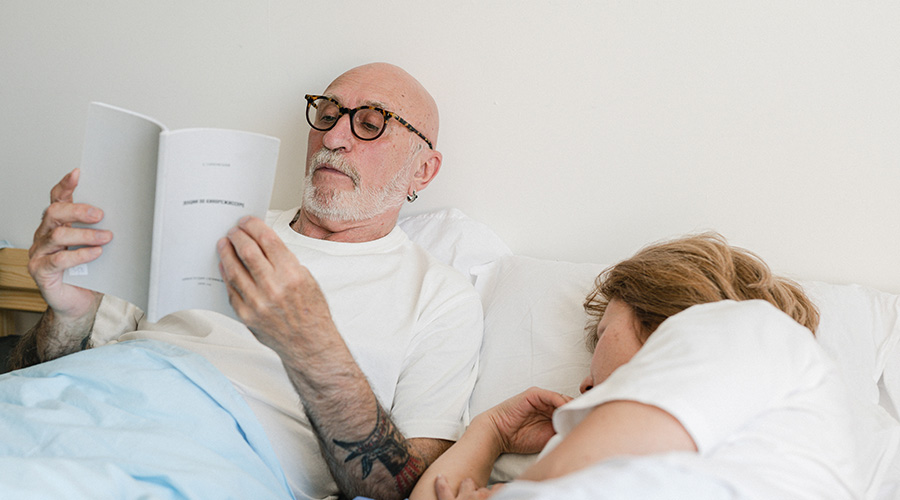
Photo by Shvets Production on pexels
There are a number of tips that seniors can use to get a better night’s sleep. First, it is important to create a sleep-friendly environment. This includes setting a regular bedtime, avoiding caffeine and alcohol before bed, and avoiding the use of electronic devices before bedtime. Additionally, it is important to maintain a comfortable temperature in the bedroom and to keep it dark and quiet.
Exercise is another important tip for getting a better night’s sleep. Regular physical activity can help to reduce stress and anxiety levels, as well as improve overall physical strength and energy. Additionally, it can help to regulate a person’s sleep-wake cycle and promote a better quality of sleep.
Finally, it is important to address any underlying medical conditions that may be contributing to sleep disturbances. This could include treating high blood pressure, chronic pain, or depression. It is also important to talk to a healthcare professional about any medications that may be affecting sleep quality.
The role of technology in sleep health
Technology can be both a blessing and a curse when it comes to sleep health. On the one hand, technology can be used to monitor sleep and provide valuable insights into sleep patterns and behaviors. For example, there are a number of sleep tracking apps and devices that can help to monitor sleep quality, duration, and other important metrics. Additionally, there are a number of apps and websites that provide helpful tips and advice on how to get a better night’s sleep.
On the other hand, technology can also be a hindrance to sleep health. The use of electronic devices before bedtime can disrupt the body’s natural sleep-wake cycle and make it more difficult to fall asleep. Additionally, the blue light emitted from electronic devices can interfere with the body’s production of melatonin, a hormone that helps to regulate sleep. For these reasons, it is important to limit the use of electronic devices before bedtime.
The importance of creating a sleep-friendly environment
Creating a sleep-friendly environment is essential for promoting healthy sleeping habits in seniors. It is important to set a regular bedtime, avoid caffeine and alcohol before bed, and avoid the use of electronic devices before bedtime. Additionally, it is important to maintain a comfortable temperature in the bedroom and to keep it dark and quiet.
It is also important to practice good sleeping hygiene. This includes avoiding naps during the day, avoiding large meals and strenuous exercise before bed, and avoiding screens and blue light before bedtime. Finally, it is important to address any underlying medical conditions that may be contributing to sleep disturbances.
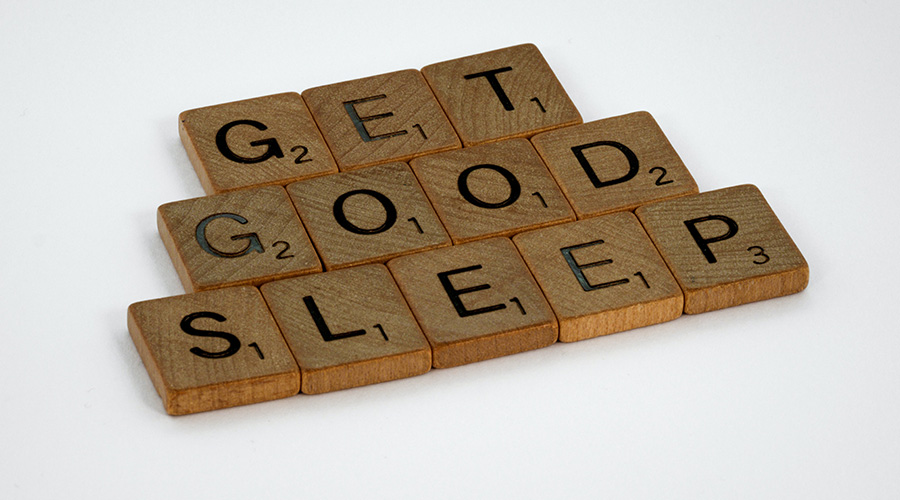
Photo by Brett Jordan on Unsplash
Conclusion
Sleep is essential for the health and wellbeing of all humans, but it is especially important for seniors due to their increased risk of chronic sleep disturbances. Poor and inadequate sleep can lead to a range of physical and mental health issues, including poor memory, increased risk of falls, weakened immune system, and depression. To promote awareness of the importance of sleep in senior health, the National Sleep Foundation created National Sleep Awareness Week, an annual event that encourages seniors to prioritize sleep. Through this awareness, seniors can begin to understand the importance of getting enough sleep and how to do so in order to maintain their physical and mental health.


